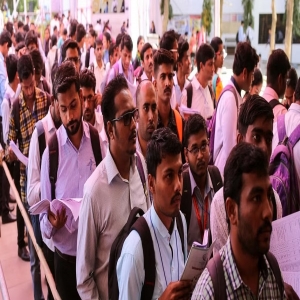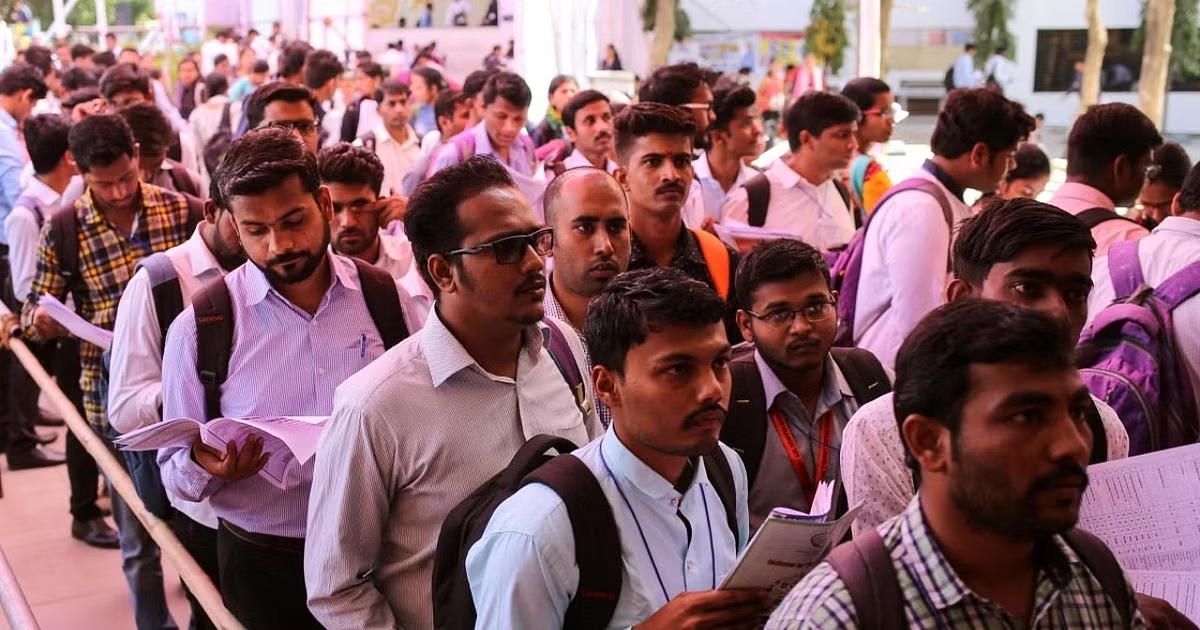
 Pachu Menon
Pachu Menon

I recently attended a state-level conference titled "Bridging the Gap: Fostering Industry-Academia Interface in Goa." It was organised by the Vidya Prabodhini College of Commerce, Education, Computer, and Management, Porvorim, in collaboration with the Goa Chamber of Commerce and Industry (GCCI), Panaji. The conference sought to bridge the gap between theoretical learning and practical skills, enhance graduate employability, spark innovation, and promote collaborative research.
"The partnership is expected to build stronger partnerships between academia and industries in Goa, aligning academic curricula with industry needs, improving graduates' job-readiness, and advancing internships and skill development programmes. It will also encourage joint research projects and support new startups and innovative initiatives." (Navhind Times)
Considering the proximity of a number of industrial establishments and companies involved in various commercial activities in the state, students could afford a fantastic opportunity to acquaint themselves with the functional technicalities of various business establishments, enabling them to become job-ready. However, it has been a sad story of squandered chances all these years.
The New Education Policy (NEP) 2023 claims to focus on developing skills such as creativity, critical thinking, communication, collaboration, and problem-solving. The policy stresses bridging the education and employment gap. Bridging the gap between academia and industry is an important initiative that can benefit both sectors.
While unemployment is a huge challenge to address, unemployability is an even bigger one. The industry-academia interface is the collaboration between the academic sector and the industry to improve the graduates and other stakeholders in the educational sector. The goal is to connect skill sets to make students more employable.
Academic-industry partnerships can help generate employment by connecting students with real-world opportunities and providing access to jobs and internships. The collaboration helps the student develop skills and knowledge and gain exposure to industry jobs. Even the 2024 Budget has focused on employment generation by providing young pass-outs with internships and emphasising value addition for the employed, with a significant thrust on skilling the demographic dividend.
However, on a serious note, how ready is the state of Goa for such path-breaking developments, which purport to bring employment closer to the student through alliances of academia with the industry?
Considering the apparent disinterest shown by many students present at the conference, either the subject under discussion was Greek to them, or their teachers did not correctly brief them about the purpose of the seminar. In the interactive session after the end of the programme, not a single one of them was enterprising enough to raise queries!
While attempts are being made to revolutionise education to keep pace with changing employment needs, it is essential that students take a keen interest in the means envisaged to better their career prospects. Education is essentially a process of 'ASK'—attitude formation, skills, and knowledge. But in the current system, sheer information is transmitted and handled. To transform it into knowledge, that information has to be processed, applied, and analysed. This happens when some real-life activity is conducted or adopted.
An internship involves applying 'what is known' to 'what is to be done' in work situations. In this sense, skilling is the nucleus of learning and education. Knowledge without skills is not of much use.
To develop skills, one needs someone to supervise, mentor, and support the intern. Skilling today is not a one-time exercise; it is a life-long process involving upskilling and reskilling to keep up with changing technology and the economy.
In the industrial pattern of the past, apprenticeship was a way to skill people. In the new environment, internships are part of many professional, technical, and commercial courses. Academic programmes need to be oriented towards the culture of internship, for which teachers need to identify individual skills, traits, and talents among students and prepare them for hands-on work life through internship.
The work-life scenario has changed drastically in the new millennium, and internships are integral to any field. Institutions and faculty will gain popularity with the options and opportunities they can provide in internships. With education becoming expensive, learners have to plan early about becoming self-dependent, with plans of work where skills are an advantage.
Neither a community nor the state would be willing to bear the burden of the educated for long. Internships and skilling must be encouraged along with acquiring academic certification. There has to be a designated authority for different types of in-service training.
Educationists, however, bemoan the fact that the Government of Goa has no such arrangement. Forget about higher education; there is no agency even for school teachers' training. The New Education Policy has prescribed such training institutions at the State, District, and, lately, block levels. But a paucity of action thwarts all good efforts.
Considering that teachers need to be trained to introduce the concept of internship, the industry must come forward and offer support to colleges. Although the need is urgent and genuine, the institutions don't seem to be taking any such initiative. Some entities must work on it.
Teachers have to move beyond course content and evaluation and build a positive attitude among learners regarding skilling and internships. What is learnt must appear through 'how it is applied, how much, and how effectively'. Such assessments will gain credibility in the long run. Having said that, the need to train teachers on the nuances of the academia-industry interface gains all the more importance.
It is observed that teachers have been teaching with limited views and narrow objectives. The vast majority of them have little or no knowledge or experience of the industry or business developments concerned with the subjects they handle. Besides, with the teachers aiming at examination-oriented pedagogy, a comprehensive study of the system in operation is restricted. Not that students' lack of interest or involvement in academic exploration and their apathy towards working further on the matter provided is encouraging either! Even after learning about the details or the latest methods adopted in the industry, it remains at the academic level without practical hands-on experience.
As motivators, guides and mentors, teachers must necessarily approach or find access and seek opportunities to work in the field or on the ground to gain insights and practical, real-life knowledge. This requires a solid commitment to the profession and a willingness to invest lengthy hours in this learning enhancement. Such exposure, experience, and interface will make teachers knowledgeable, practical-minded, and more useful for their learners and institutions.
Often, teachers depend on online resources, which may provide the latest information but which, in the absence of application to the local scenario or by comparison with what is seen in the vicinity, remains irrelevant to the learner's progress. Institutions, faculties, and management must treat periodic upskilling of teachers as a priority. In many advanced countries, they prefer industry experience when choosing faculty, which makes sense.
In our setup, the academic programmes are far removed from what goes on in the field continuously, speedily, and simultaneously. Curriculum development is left in the hands of people, mainly from the academic side, and the participation of industry or business leaders in this is minimal. As seen in day-to-day situations, teachers' interaction with the community on specific learning or subject areas also seems to be too little or absent.
A well-thought-out programme involving the practitioners of various businesses and managers of relevant industries or professions, updated and revised from time to time with projections and prospective plans, can help build the right path to internship promotion, popularisation, and performance. Teachers will thus have to be the drivers of this transformation. A proactive approach by teachers to these modern demands becomes all the more essential.
Teachers have to think aloud and brainstorm together continuously on each issue. The approach of 'compliance' and 'completion' cannot resolve the tricky issue of making our youth employable, dependable, and productive. It is observed that individual teachers approaching the end of their career find themselves ill-equipped with technology and those in their early stages have no clue of the potential of collective thought and action.
It is high time all the stakeholders in academia and educational administration, as well as the providers and beneficiaries of education, worked together to make this shift possible through concerted efforts and collective action.